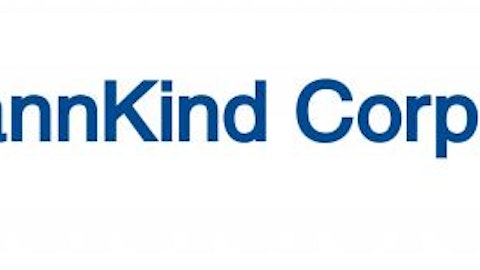Social media stocks have sent investors, including myself, into a dizzy over the last half decade. They have risen out of nowhere, fallen out of nowhere, and bounced from the dead out of nowhere. One thing is clear, however: Industry players will have to move fast to create any sort of sustainability. The risk of standing still is too great; emerging entrants always loom. Below, I review two companies that are taking steps, however sound, to address sustainability concerns.

After plummeting from its IPO price, Groupon is now trying to “reinvent” itself by entering new markets. After successfully launching a “special deals” category, the company started to shift towards e-commerce. It is now strengthening its position in e-commerce through the acquisition of CommerceInterface, which helps manage online orders. Groupon already used CommerceInterface to process its own online sales. Then there was the mid-January decision to buy Glassmap, which enables users to track the location of Facebook Inc (NASDAQ:FB) friends and Twitter users and to update them accordingly.
In regard to the company’s “special deals” category, Groupon’s Goods website has driven improvements in investor expectations. Evercore recently projected that 2013 revenues would go to over $2.5 billion, a 150% growth compared to the same quarter a year before. This projected increase is coming from a pool of over 40 million daily Goods customers. A recent partnership with the MLB to sell tickets also should signal to the market that the company is aiming to get active on sponsorships with authority organizations.
My main concern with social media stocks like this is that they tend to ride the wave of investor hype. After Linkedin Corporation (NYSE:LNKD) soared nearly 20% on better-than-expected results, Groupon received a 2.7% jump. Someone please tell me: How does Groupon have anything to do with LinkedIn? I understand that they both run on the Internet, but they are in totally different markets and still very much working on monetizing their very different user bases (ie. consumers and career builders). These kind of market reactions make clear to me that the stock is largely based on speculation and emotion; fundamentals take a back seat. It is this kind of unpredictability that drives me away from the stock.
How Zynga Inc (NASDAQ:ZNGA) Is Looking to Create Value
After being essentially unfriended by Facebook, Zynga has taken steps to diversify its business. The new effort is focused on gambling. The company is planning on launching an online gambling business in the UK in 1Q13 while filing licensing rights in Nevada. The release of several games–Elite Slots, Zynga Poker and Zynga Slots–targets the young adult Facebook market.
In addition, the company is trying to enter new mediums as a way of improving sustainability. The company recently made a deal with the pay-TV company Synacor, which will now feature Zynga games. But the competition seems to be too much for Zynga to bear. This was perhaps most visibly showcased when Facebook CEO Mark Zuckerberg held a meeting with social network game developers that introduced a sliding scale revenue that was more or less tilted against Zynga. Needless to say, Zynga representatives were not in attendance.
Though the stock has rebounded 67% from the 52-week low, I remain highly bearish on the company. As far as I’m concerned, there is 42% downside on the stock with cash at $2.03 per share. If the core business can’t sustain itself through value creating moves then the stock has little reason to justify why it has beaten the market in recent months. The ideas of gambling and partnerships with second-best media outlets do not encourage me to buy over a sustainable Internet business like Google Inc (NASDAQ:GOOG), which is also dabbling in pie in the sky ideas.
Conclusion
Groupon has recovered quite a bit (doubling, to be precise) since falling to its low. With no debt and a free cash flow yield of 8.3%, the firm still looks cheaper than many of its social media peers. Zynga is overly reliant on social networking sites, which are faddish. Moreover, the company is just moving into the profitable territory with a very vulnerable business model. In my view, Facebook is a considerably more attractive stock to play than Zynga is. It is incredibly cash rich at a current ratio of 10.7x and is still on track for high double-digit growth. Moreover, it has considerable opportunities to monetize a 1 billion user base–once it finds what works, the current multiples will be less of a hindrance to value creation. This preference is ultimately shared on the Street: Cantor Fitzgerald and Deutsche Bank both recently reiterated a “buy” rating.
The article Should You Buy These Social Media Stocks? originally appeared on Fool.com and is written by David Gould.
Copyright © 1995 – 2013 The Motley Fool, LLC. All rights reserved. The Motley Fool has a disclosure policy.




